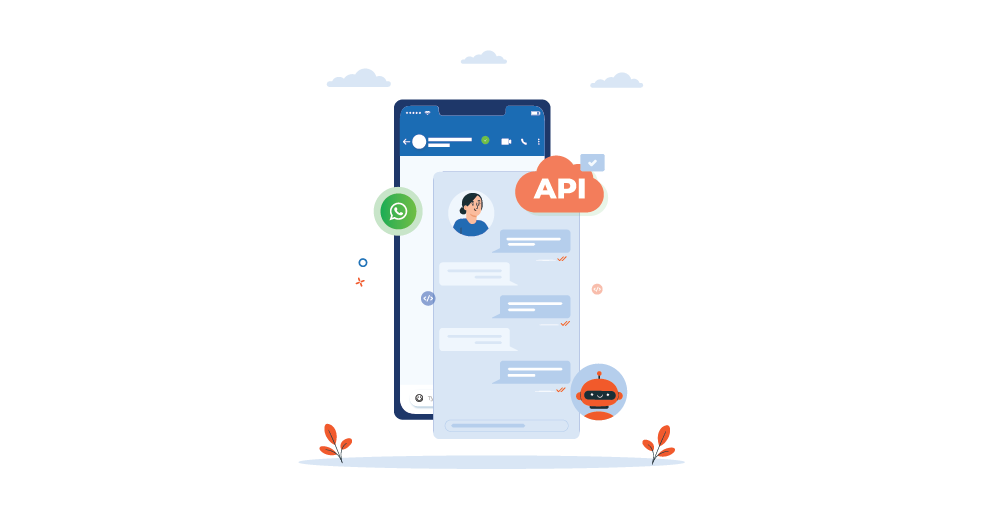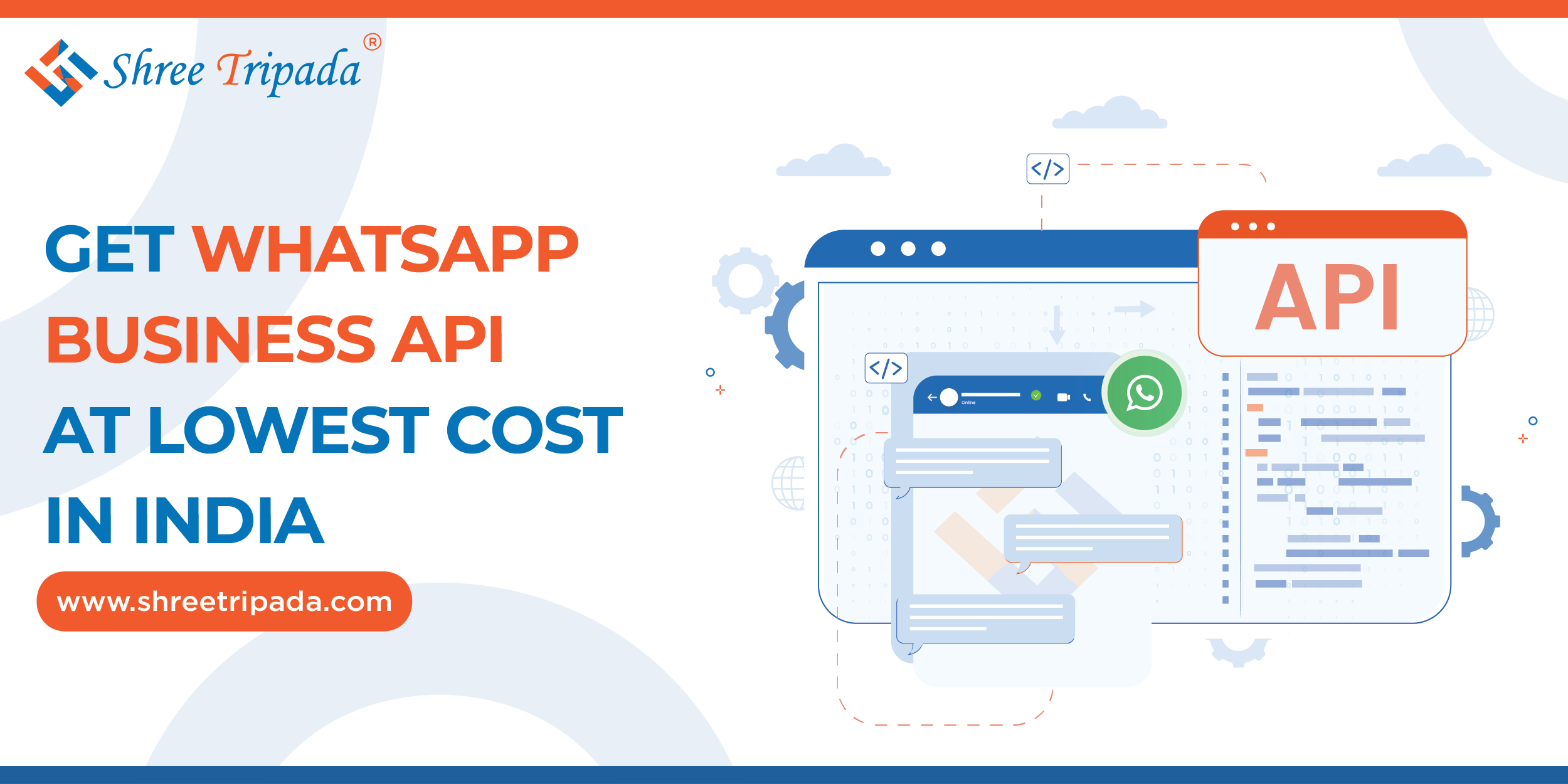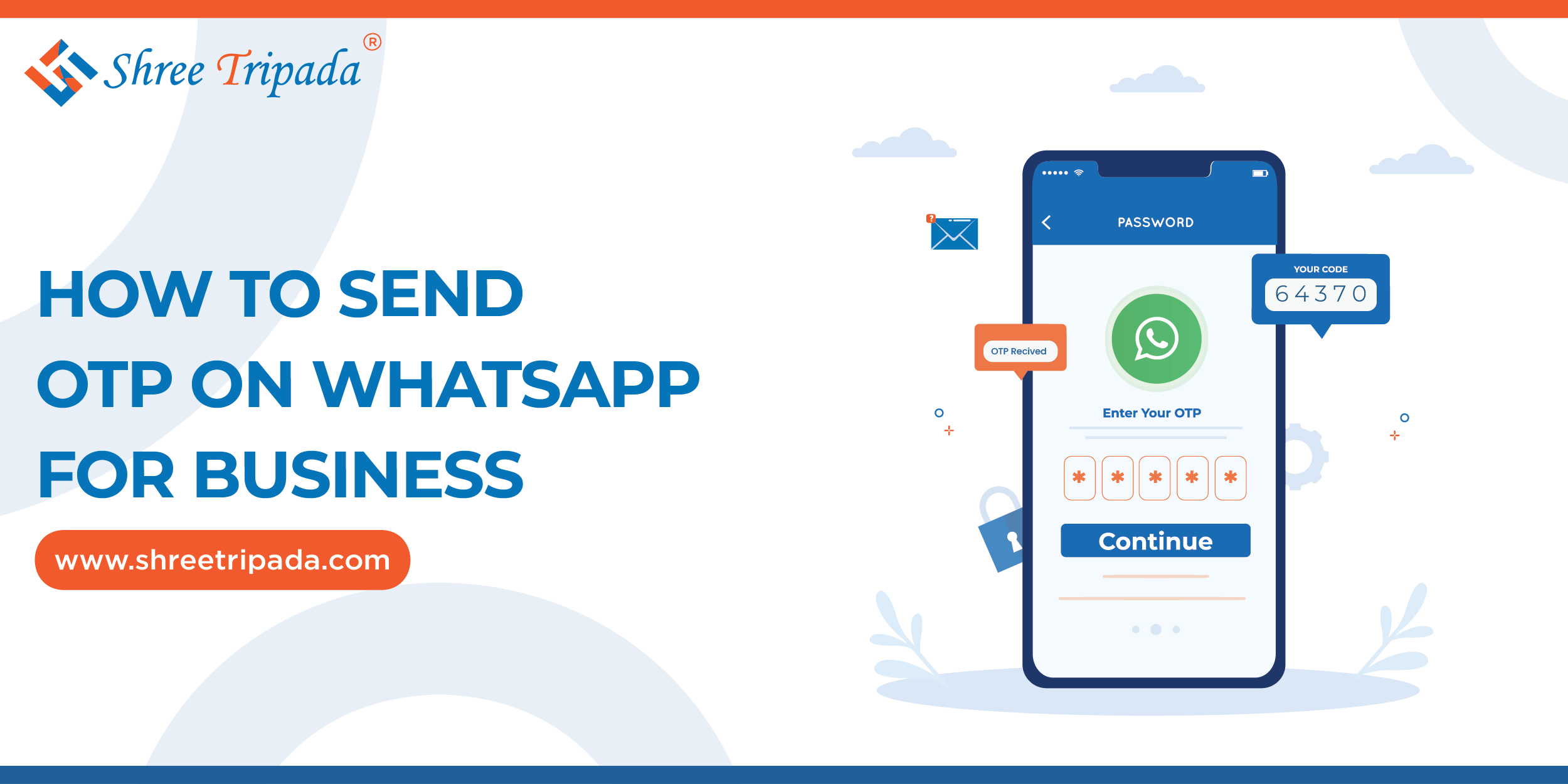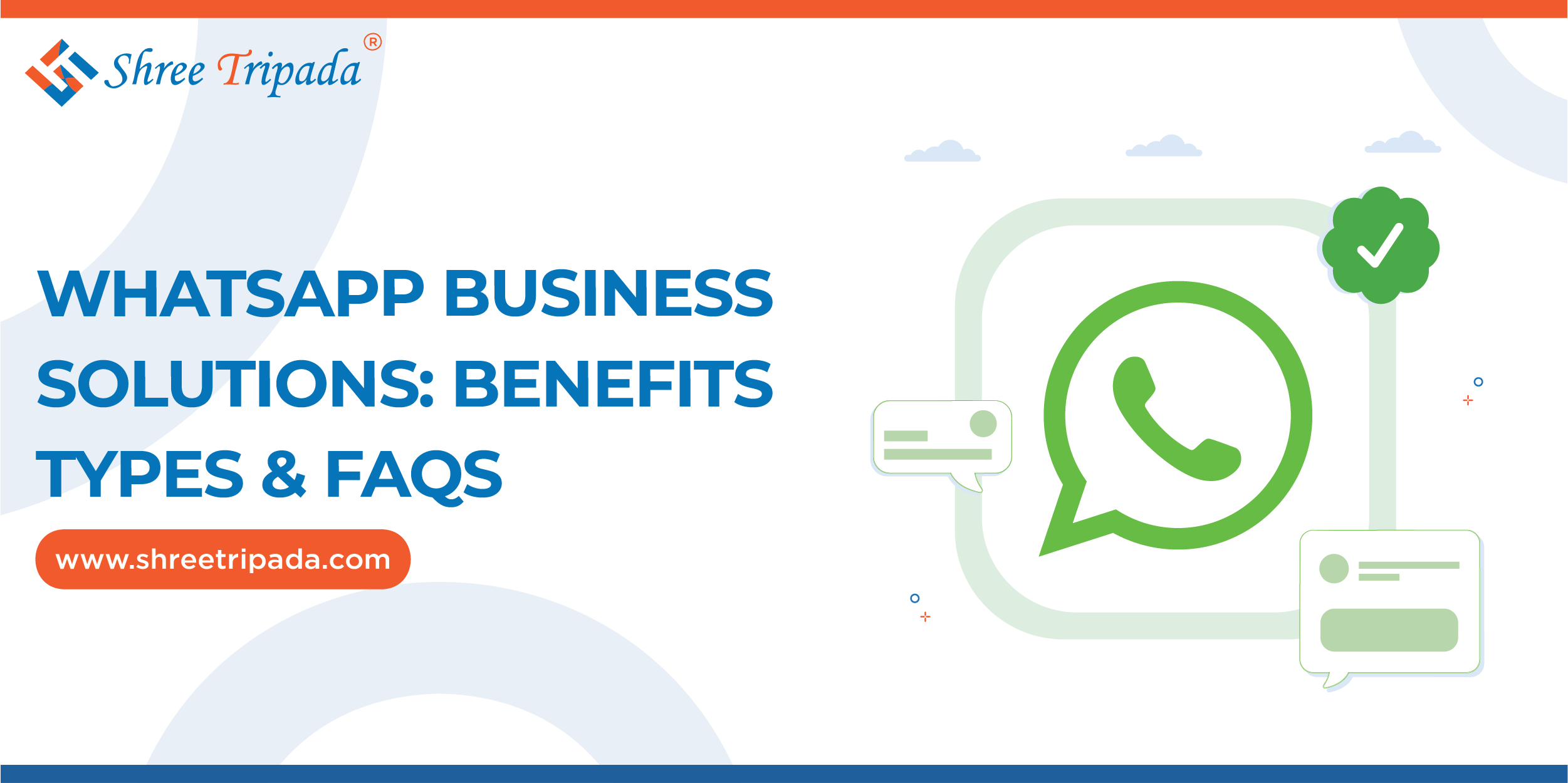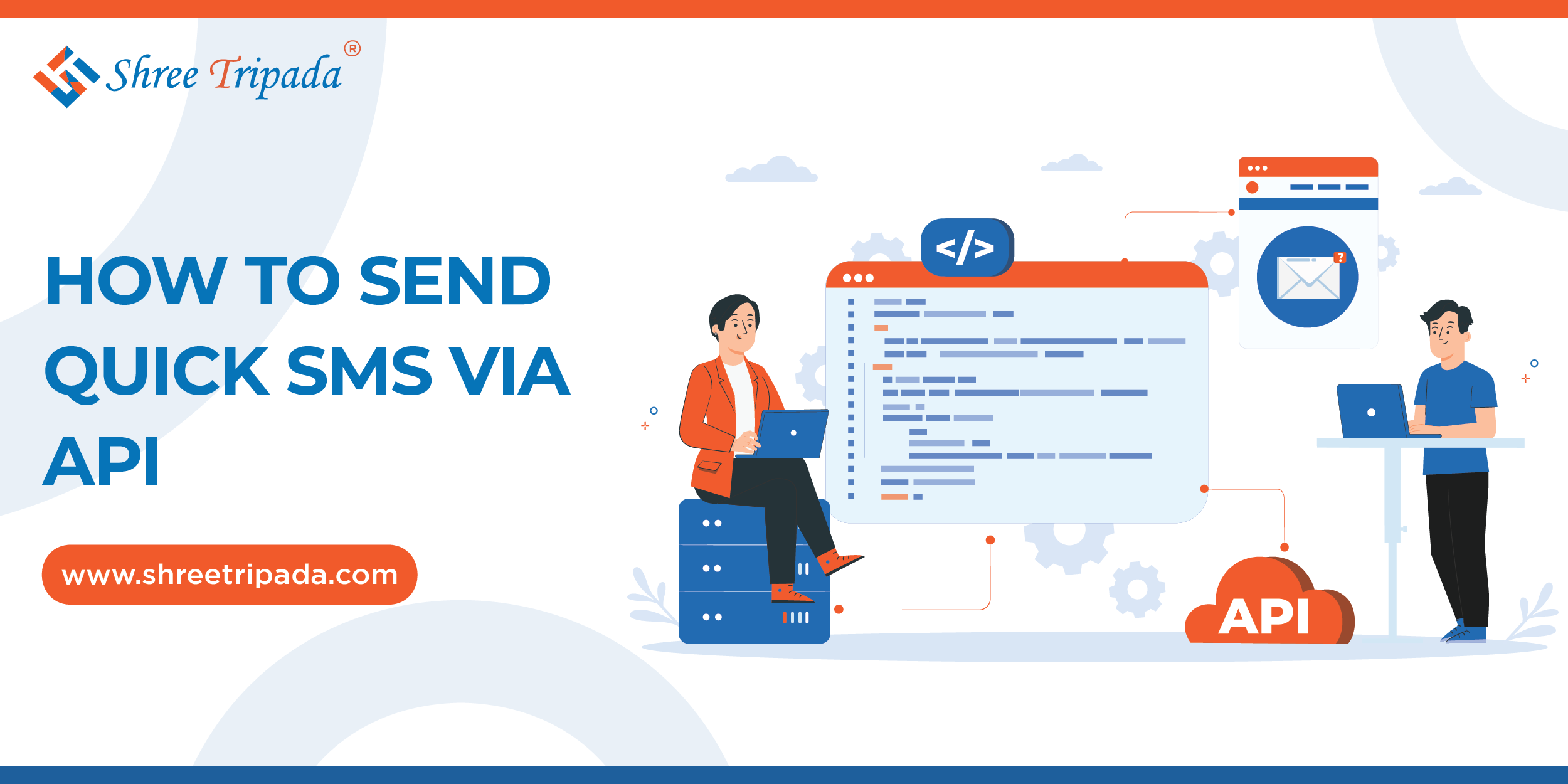WhatsApp is a powerful tool for engaging with audiences. Leveraging WhatsApp Business API...
Learn moreImportance of automating customer interactions
Automating customer interactions with WhatsApp Business API can make your customer service more efficient, simplify your operations, and increase customer satisfaction. By setting up automation, you can handle common customer questions instantly and keep your team focused on more important tasks. Plus, it ensures that your customers always get quick and helpful responses, no matter the time of day. Here’s how you can get started:
Set Up Your WhatsApp Business API
Get Access: Start by creating your WhatsApp Business API account. This process includes registering your business, verifying it through Facebook Business Manager, and selecting a WhatsApp Business Solution Provider (BSP) to gain API access.
Set Up API Integration: Integrate the WhatsApp API with your current systems, such as your website, CRM, or customer support platforms, to begin automating interactions.
Create Automated Responses
Welcome Messages: Configure automated welcome messages to greet customers as soon as they contact you. This ensures the initial interaction is prompt and engaging.
FAQs and Common Queries: Automate responses to common queries and frequently asked questions (FAQs). For instance, you can set up automated replies for inquiries about business hours, product details, or service offerings.
Develop a Chatbot
Select a Chatbot Platform: Utilize platforms such as Dialog Flow, Twilio, or a custom-built solution to create a chatbot that meets your business requirements. These chatbots can manage routine inquiries, schedule appointments, and even process orders.
Automate Interactions: Automating customer interactions with WhatsApp Business API by setting up your chatbot to assist customers through typical processes like placing orders, checking delivery statuses, or resolving product issues. Make sure the chatbot delivers precise and clear information.
Integrate CRM for Personalized Interactions
Synchronize Customer Data: Link your CRM system with the WhatsApp API to customize customer interactions. By leveraging past interactions, purchase history, and customer preferences, your system can provide more personalized responses.
Initiate Automated Messages: Utilize CRM data to send personalized messages based on customer actions. For example, automatically send a follow-up message after a purchase or a reminder for upcoming appointments.
Utilize Message Templates for Structured Communication
Develop Pre-Approved Templates: WhatsApp mandates the use of message templates for specific types of communication, particularly when initiating contact. Create a variety of templates for different scenarios such as order confirmations, shipping updates, and payment reminders.
Automate Template Deployment:Configure your system to automatically choose and send the appropriate template based on the context of the customer’s interaction.
Send Automated Notifications
Order Updates and Alerts: Automate transactional messages like order confirmations, shipping updates, and payment receipts. These notifications can be automatically triggered by customer actions or system events.
Event-Based Triggers: AutomateConfigure event-based notifications, such as reminders for scheduled appointments or alerts when a product is back in stock.
Implement Human Escalation
Handover Protocols: While automation is efficient, it's important to know when to escalate the conversation to a human agent. Establish protocols that enable the whatsapp chatbot for automated messaging and to identify complex issues and transfer them to a human representative.
Seamless Transition: Ensure the handover from the bot to a human agent is smooth, with the agent receiving all necessary context to continue the conversation without any interruptions.
Monitor and Optimize
Track Performance: Consistently monitor the performance of your automated interactions using analytics tools. Focus on metrics such as response times, customer satisfaction scores, and frequently asked questions.
Continuous Improvement: Leverage insights from analytics to enhance your automation processes. Update chatbot responses, refine message templates, and improve CRM integration to better serve your customers.
Test and Refine
Conduct Tests: Before fully deploying any automation, conduct tests to ensure everything functions as expected. Simulate customer interactions to uncover and address potential issues.
Collect Feedback: After implementation, collect feedback from customers and your support team. Use this feedback to make the necessary adjustments and improvements.
By adhering to these steps, you can efficiently automate customer interactions on WhatsApp. This will help reduce response times, enhance the customer experience, and allow your team to concentrate on more complex customer service tasks.
Conclusion:
Automating customer interactions through the WhatsApp Business API with Shree Tripada, a top WhatsApp API provider, can significantly enhance your service efficiency and improve customer satisfaction. Shree Tripada’s expertise guarantees a system that provides quick, personalized responses, allowing your team to focus on more important tasks. This partnership not only streamlines operations but also boosts customer loyalty, giving your business a competitive edge in today’s market.
- How to Reach Customer with Bulk SMS?
- How to Get Bulk SMS Panel
- Bulk SMS Software Setup
- What is DLT Registration and How to register on DLT platform
- How to Get Free DLT Registration For Bulk SMS - Shree Tripada
- What is Bulk SMS API?
- How To Send Bulk SMS Without DLT Registration
- Bulk SMS Gateway API
- How to Register a Template on DLT Platform?
- Jio DLT Registration Process For Bulk SMS
- How do I Integrate Shree Tripada's Bulk SMS API with My Website?
- BSNL DLT Registration Process for Bulk SMS
- Bulk SMS Entity Registration Process
- How to Buy Bulk SMS Credit?
- Are bulk SMS more affordable than other forms of advertising?
- How To Get Bulk SMS Connectivity
- TRAI DLT Regulation For Bulk SMS
- How to Choose Best Bulk SMS Service Provider?
- How Bulk SMS Panel Works & How to Get Started
- How to Send Quick SMS Via API
- How To Register Header in DLT?
- What is Delivery Report in Bulk SMS?
- Tata DLT Registration Process for Bulk SMS
- Vodafone Idea DLT Registration Process for Bulk SMS
- Videocon DLT Registration Process for Bulk SMS
- Location-Based SMS Marketing for Modern Businesses
- How Two-Factor Authentication SMS Keeps Your Data Safe
- How eCommerce Brands Boost Sales & Conversions with WhatsApp API
- How to Automate Customer Interactions with WhatsApp Business API
- How to Send Multiple Bulk Messages on WhatsApp At Once
- WhatsApp Business API : A Complete Guide to Get Started
- WhatsApp Chatbots: The Future of Automated Communication
- Reliable CPaaS Services for Business Growth
- Get Whatsapp Business API at Lowest Cost in India
- DLT Registration on Jio Trueconnect | Jio DLT
- Why WhatsApp API is the Best Choice for Your Business
- 7 Key Benefits of Bulk SMS for Your Modern Business
- Key WhatsApp Business API Features Every Business Should Use
- Why Bulk SMS Should Be a Core Element of Your Business Strategy
- Take Your Business to the Next Level with the Leading Bulk SMS Service in India
- 10 Benefits of Investing in Bulk SMS Service Provider in 2025
- 2025's Best Practices for Effective Bulk SMS Campaigns
- Why Mumbai Businesses Trust Bulk SMS Services For Marketing
- 10 Ways to Earn Profit with Bulk SMS Services in 2025
- Send Bulk WhatsApp Messages Legally at Affordable Pricing
- Alternative of Email Marketing - Bulk SMS Service
- Why Bulk SMS & WhatsApp API Are Key to Modern Business Success
- How To Send Christmas Greetings with WhatsApp Bulk SMS?
- Everything About OTP: What It Is and How to Buy OTP
- The Most Effective SMS Templates for Financial Services
- Apple RCS Support in iOS 18: A Big Change for Messaging on Apple Devices
- 7+ RCS Messaging Examples and Their Everyday Uses by Industry
- Airtel DLT : Complete DLT Registration Process
- What is Two-Way SMS? Advantage of Way to SMS! How does it work?
- Best OTP Sender in India - Shree Tripada
- What is Apple RCS Messaging? Its Meaning and RCS Chat?
- Templates For Payment Successful & Money Received Message
- Fastest Way2SMS in India, Powered by Shree Tripada
- RCS VS SMS : Is RCS better than SMS?
- How Bulk SMS Can Work with DND Rules - Explore DND Filter
- What is Flash SMS? How is Flash Message important for Bulk SMS Service?
- Boost Engagement with SMS Portal & Bulk SMS Service
- RCS Chat Means a Better Way to Connect with Your Audience
- Shree Tripada - Unlimited OTP Sender and Bulk SMS Provider
- How to Choose the Right Bulk SMS API Provider in India
- Are Free SMS Online Services Safe? What You Need to Know!
- What is NIC SMS Service? How to do NIC SMS Registration?
- Understanding the Power of 160by2 Characters in Effective Messaging
- The Benefits and Risks of Using Free SMS Online
- What is TOTP and How Does It Work?
- Bulk SMS Services for the Packers and Movers Industry
- Autobuy OTP: A Convenient Option or a Privacy Threat?
- Can You Really Send SMS Without a Number? Why It's Dangerous and Not Worth It
- OTP Bypass: Risks and Prevention Explained in Detail
- 101+ Text Abbreviations and How to Use Them Like a Pro [UPDATED 2025]
- Number Masking: Safe Bulk SMS for You [Updated 2025]
- DND Complaints and DND Numbers: Key Information You Should Know
- OTP India: How Bulk SMS Makes Security Faster
- How to Send Bulk SMS at Affordable Rates in India
- MFA Tools and Bulk SMS: The Perfect Pair for Stronger Authentication
- Why Bulk SMS is Essential for Omnichannel Marketing
- How to Make Your WhatsApp Introduction Message Stand Out
- SMS Gateway vs. SMS Portal: Which is More Effective for Marketing?
- Omnichannel Marketing: A Beginner’s Guide with Real Examples
- The Dark Side of SMS Blasting: Are You at Risk?
- Can You Bypass OTP for Online Payments? Myths vs. Reality
- Send OTP via SMS or WhatsApp? Which is More Secure & Cheaper?
- Receive SMS Online for OTPs: Free vs. Paid Services
- Fake OTP Senders: A New Cyber Threat
- 30+ Top Restaurant Promotion Message Templates (With Examples)
- 20 Fees Due Message Samples (SMS, Email, and WhatsApp)
- SMS Blast Pranks: The Hidden Danger Behind That ‘Funny’ Joke
- 15 Ready-to-Use Loan Advertisement Templates for Banks, Lenders, & Agencies
- 10 Spam Text Message Examples and Simple Tips for Staying Safe
- Shree Tripada Unlimited Message – Affordable, Reliable & Powerful
- Send Free SMS Online Without Registration - Shree Tripada
- Transactional SMS for Bills, OTPs & Alerts – Do It the Right Way
- How to Choose the Right OTP Site for Your Business
- WhatsApp API Costs: Which Plan Fits Your Business?
- Mass Texting Services: Fast, Easy, Powerful
- RCS Messaging: A New Era of Communication
- Why Transactional SMS is the Most Reliable Way to Send OTPs
- Why Businesses Should Switch to RCS Messaging in 2025
- What Are OTPs in Messages and Can You Trust Them?
- Transactional SMS vs OTP SMS : Which One Does Your Business Need?
- Free SMS API vs Paid SMS API: Pros, Cons & Hidden Costs
- Transactional SMS for SaaS: Send Activation Links, Password Resets & More
- Quick SMS: Deliver Bulk Messages in Seconds, Not Hours
- Your Complete Guide to Bulk SMS Prices and Packages - 2025
- What Are OTP Messages? Everything You Need to Know in 2025
- Fake Message Sender Apps: Fun or a Serious Privacy Risk?
- RCS Message vs SMS: Which One Should You Use in 2025?
- Best Bulk SMS Service Providers in Delhi NCR (2025)
- TrueConnect Jio: Features and Benefits Explained
- Why OTP SMS Service Is the Future of Security
- SMS Bombing and SMS Bomber online: Harmless Prank or Serious Crime?
- How to Start Grocery Shopping on WhatsApp and Scale Your Business
- Web SMS Simplified: How to Send and Manage Texts from Your Desktop
- How Bulk SMS Providers Help You Send Recharge Messages Instantly
- Free SMS Blasts Can Ruin Your Brand’s Reputation - Here’s How
- OTP Trap: How Fake OTP Messages Are Used by Hackers to Trick You
- WhatsApp OTP Numbers: The Smart Way to Verify Instantly
- The New Era of Chat: XChat
- What Is a Msg Bomb? New Tricks or Bigger Risks?
- Phishing Attack Meaning: A Complete Guide to Online Scams
- Are Temporary Numbers for OTP Legal and Safe to Use?
- WARNING! Don’t Try That SMS Bomber Before You Read This
- Receive SMS Online India: Don’t Always Trust Sites
- What Is an SMS Call Bomber and Why You Should Avoid It
- What Is a Smishing Attack? How to Spot and Stop SMS Scams
- SMS Boom or SMS Spam? Where Brands Must Draw the Line
- SMS in Bulk for Free - Data Breaches, Spam Flags & More
- What Is SMS and Why Do Phones Still Use It in 2025?
- Why RCS to SMS Conversion Matters for Your Business Messaging Strategy
- Searching “SMS Near Me”? Don’t Miss These Key Features in a Service
- Free vs Paid WhatsApp Bulk Message Sender: Which One Should You Choose?
- Mass WhatsApp Messaging – Grow Your Business 10X Faster!
- Prank SMS: When Laughs Turn Into Lawsuits
- How to Avoid Scam Websites When Using Bulk SMS Services
- SMS Verification Codes Delivered Instantly via Bulk SMS
- How to Send Text from Computer Using Bulk SMS Services - Shree Tripada
- SMS Web: The Future of Easy and Smooth Mobile Messaging
- 5 WhatsApp Scams to Watch Out for in 2025 - Pink Whatsapp Scam
- History of SMS Messaging: The Story Behind Mobile Texting Revolution
- India’s Top Bulk SMS Service Providers – 2025
- What is DLT Full Form? Top Facts You Didn’t Know About DLT
- SMS Blast in 2025: Common Errors That Can Cost You
- The SMS Boom Could Be the Next Big Cybersecurity Crisis
- Think Twice: Fake Prank Messages Could Cost You in 2025
- The Future of RCS Service + Inspiring RCS Message Examples
- Why Every Brand Is Switching to SMS Gateways in 2025
- Free vs Paid Services to Receive Text Messages Online
- Bulk SMS Provider Trends in 2025 You Can’t Ignore
- How to Send Bulk SMS Free (and Why It’s a Bad Idea)
- RCS in Banking: A Smarter, Safer, and More Engaging Experience
- Best WhatsApp Promotional Messages That Drive Customer Conversions
- How to Enable WhatsApp Auto-Reply for Faster Customer Communication
- Best SMS OTP Service Providers in India
- What is a One-Time PIN Code (OTP)? A Complete Guide to Secure Verification
- Send Free Bulk SMS Online Without DLT Registration: Is It Truly Possible in 2025?
- How to Send 1000 SMS Free Online with Shree Tripada
- WhatsApp Automation Explained: Benefits, Use Cases & Real Examples
- What Is MO (Mobile Originated) SMS? A Complete Guide
- SMS Gateway: Picking the Right Provider for Reliable Messaging
- What Is an SMS Short Message Service? A Complete Guide for Businesses
- What is A2P SMS? Benefits, Use Cases, and How It Works
- Best WhatsApp Business Greeting Messages to Improve Customer Experience

